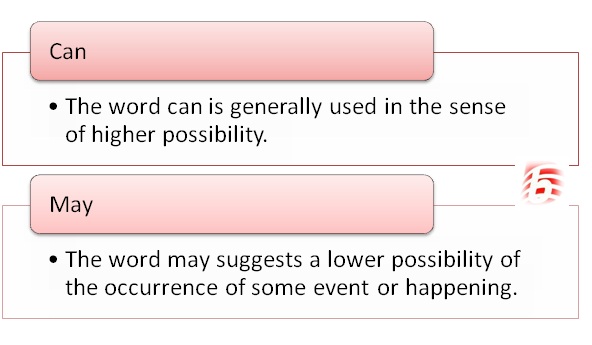Can vs May
It is crucial to understand the difference between “can” and “may,” as these two English words are often mistakenly considered interchangeable in terms of their meanings. In reality, there is a significant difference between them, as both “can” and “may” function as verbs and nouns and have their origins in Old English. Both words can be used to make requests, but “may” is more appropriate in formal situations. Let’s examine the various differences between “can” and “may.”
What does Can mean?
“Can” typically indicates a higher possibility, as seen in the following sentences:
– I believe he can do it.
– He can win the race.
In these examples, “can” suggests a greater possibility of an event or happening occurring. The word “can” is also used to start a sentence in the form of a question, as in:
– Can you do it?
In this instance, “can” makes the reader question whether or not the person has the ability to perform a task. “Can” also means “be able to,” “know how to,” and “potentially capable of,” and occasionally implies permission, as in:
– Can we attend the class today?
What does May mean?
Conversely, “may” implies a lower possibility of an event or happening occurring, as demonstrated in the following sentences:
– He may come to the office today.
– I may call you in one hour.
In these examples, “may” indicates a lower possibility. “May” can also be used to request or grant permission, as in:
– May I come in, sir?
Furthermore, “may” can express possibility, desire, or a wish, as in:
– It may be true.
– May he live long enough to see his grandson.
What is the difference between Can and May?
- “Can” generally implies a higher possibility, while “may” suggests a lower possibility of an event or happening occurring.
- “May” is used to request or grant permission, whereas “can” is used to form a question at the beginning of a sentence.
- Both “can” and “may” have distinct usages that should be carefully observed and appropriately used.
